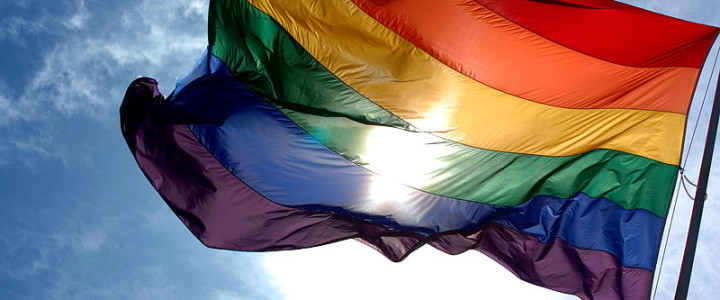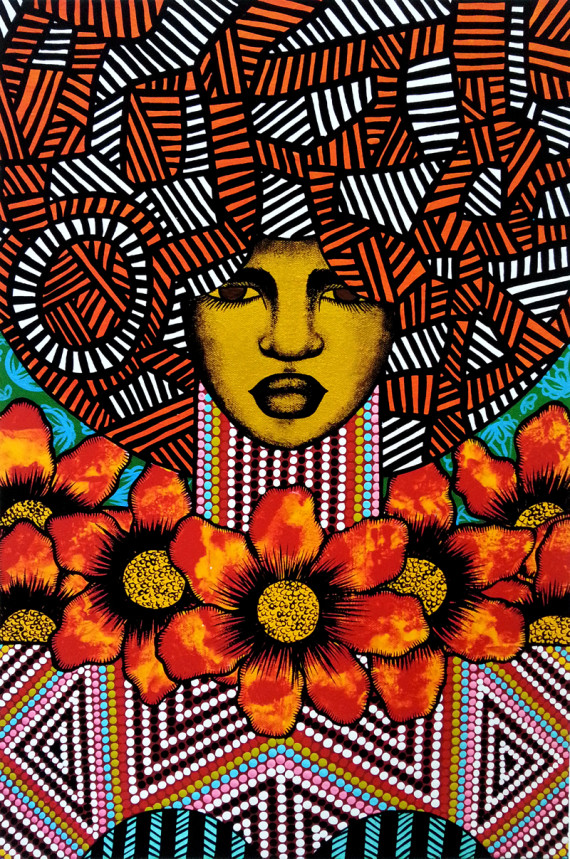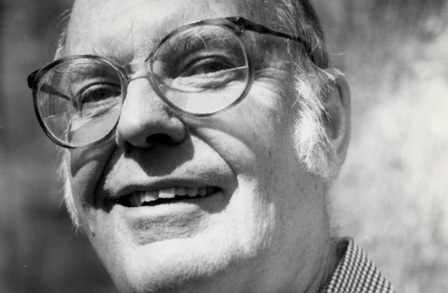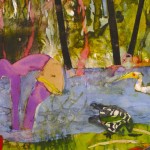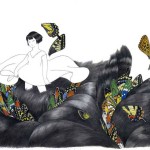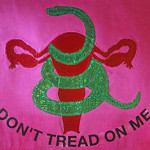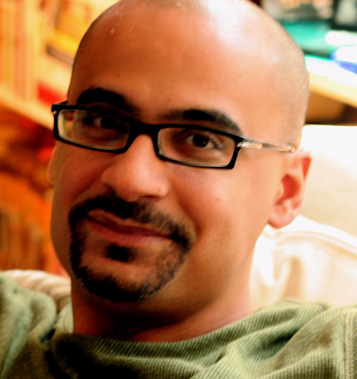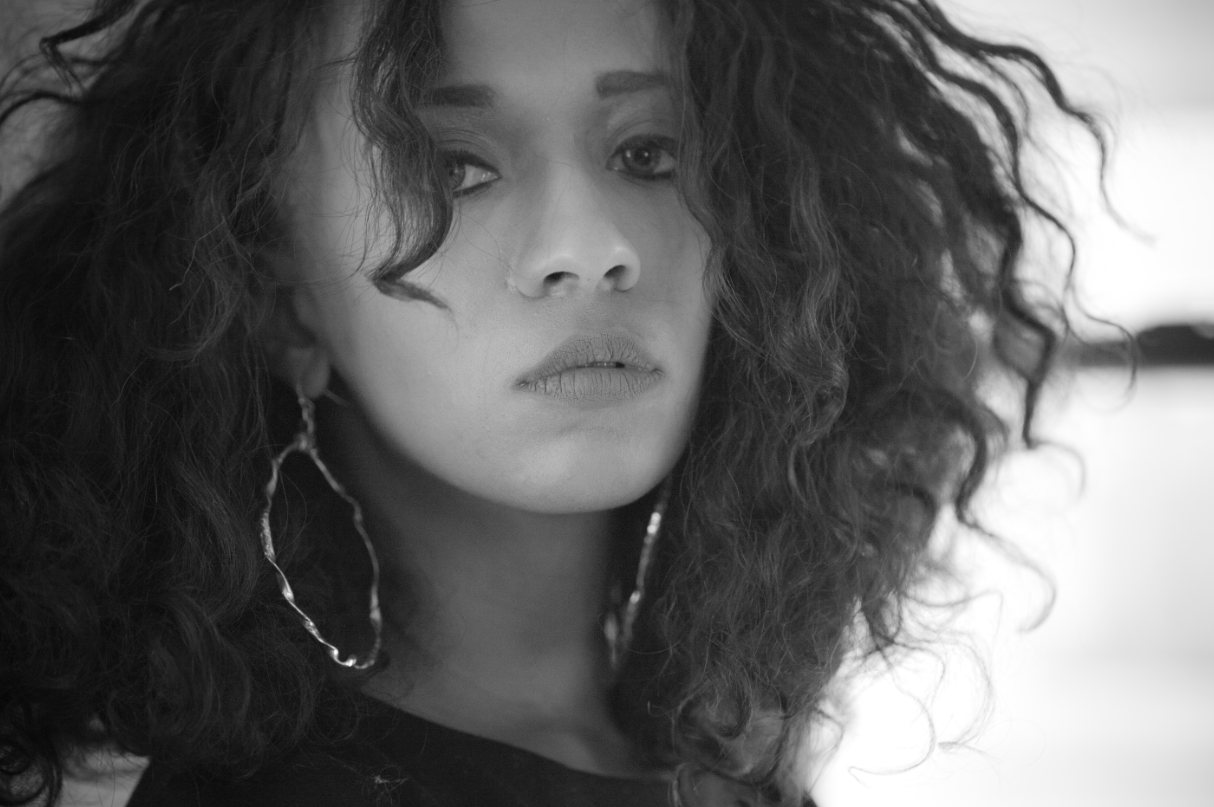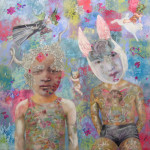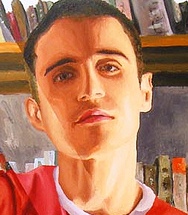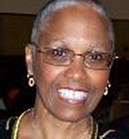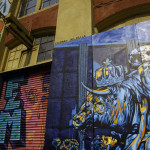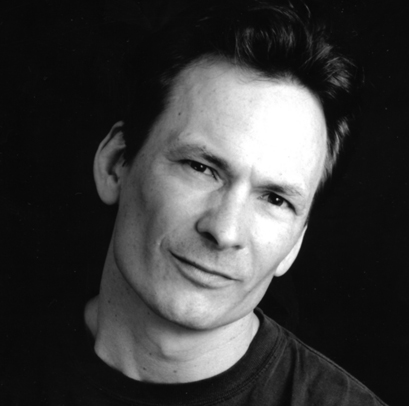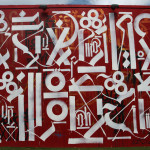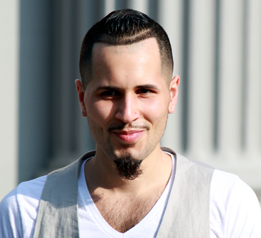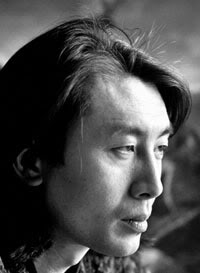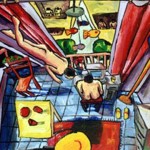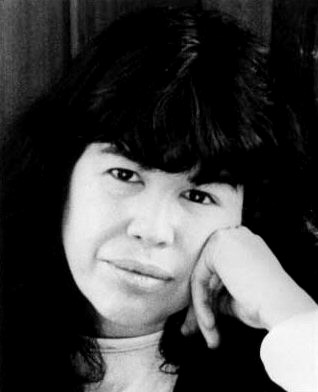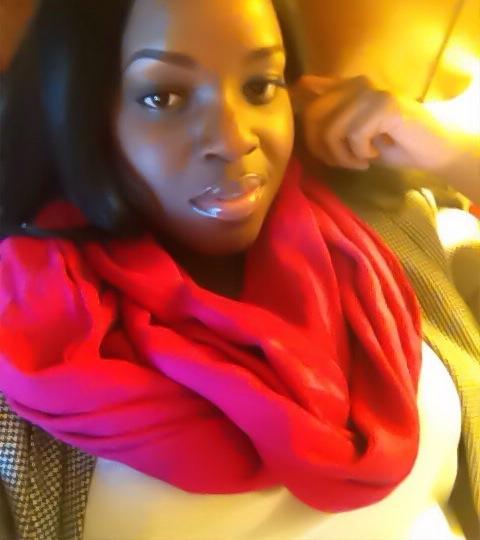For the New Jersey Four[i]
Verniece
The whole summer after high school graduation, the weatherman on Channel Nine kept promising a heat wave. Had me dreaming of days curled up under the dust and rattle of the AC with my son, Anthony Jesús, and nights out in the Village with my lady, Luna, and our squad. A heat wave woulda left my mother too drained to hassle me about my life. None of her muttering: What you fi do Verniece, sit at home with that girl, getting big as this room while your baby starve. Yu na have plan? My plan was to college and major in Astronomy, back when I bothered with a future tense. When I told my mother this, she would grunt. No yu nah gwan waste my money or yours, studying some devilment ‘bout birthdays and signs. She would say this angrily, sucking my dreams from me like the gristle from a chicken bone. I had looked forward to sweating it out that summer, listening to my baby gurgle and gathering words for that fight. But the damn heat wave never came. I began to imagine myself leaping into the television with the weatherman and snatching the gray-speckled rug off his head, just to show him how it felt to have small hopes taken away. But that was not my spirit, back then. I was patient, quiet. I waited.
Anthony Jesús was patient too, as always. He was never a problem. We were not like the teen pregnancy stories you see on television. My mother was actually happy to learn a baby was coming. Seeing Luna and me together and so strong for two years she had panicked, started in early on those things that middle-aged mothers go through—hassling me about when I’d find a husband, worrying endlessly about growing old on God’s Green Earth with no grandbabies to care for. Sometimes, when the bookshelf buckled or a doorknob came loose, she would take an Olympic breath and sigh out: Yu know we need a man in the family, with yuah papa gone now. I would get up quickly from wherever I was and fix whatever was broken. Then I would remind her—silently, in my mind—that my father had died a decade ago, and had never been the handyman type in life. Be careful what you wish for, my fantasy self would say. I knew it wasn’t a son-in-law, or even grandchildren that she wanted. What she wanted was a different kind of daughter. If I had come to her at any point in high school to tell her I’d sworn off pussy and decided to become a nun, she woulda flown to the church, tithed her whole pension, and sung the choir off the altar with the force of her gratitude. In my mind, I told her all about herself. In real life, though, I said nothing. Just counted the weeks till Luna and I had saved enough money to pay her cousin for his Y chromosomes.
Luna went to school and worked two jobs that summer, while Anthony Jesus and I held each other down in my mother’s house. She would come home from her afternoon gig at the Pretty Look nail salon on Bloomfield Ave with soul food dinners for all of us. My mother would refuse, pursing her lips and cradling her stomach like a hurt kitten, shaking her head and saying me nah feel settle. Then she’d creep into the kitchen late at night and rifle through the leftovers, just fi likkle pick.
Luna hid her hurt and kept trying. She sang to me and the baby whenever we needed it, and brought me bootleg telenovela DVD’s whenever I asked. Her lips were like sponges just wrung free of cool water, perfect on Anthony Jesús’s cheeks, perfect anywhere on me.
We weren’t really sweating my mother, back before my words fell away. We weren’t really sweating anything but each other, ourselves, and our son. Even the baby’s name is about us, although our girls don’t know it. Some babies’ names are about important people, spelling collages from history book pages or a crisscross of branches from two family trees. Anthony Jesús’s first name came like that, from Luna’s bucktooth brother Antonio, who died of AIDS when she was six, and had the widest smile of any man she’d seen. But Jesús came from a moment, a thing that happened the last time I went to church, four weeks after I pissed pink on the EPT strip.
My mother had dragged me to Saint Anthony’s, pushed by a mix of shame and relief. She was glad about the baby, I knew, but she was also rushing to have me put likkle face in the church before my stomach started to show. I expected all this when I told her my news, and I took her madness in stride. I was not surprised that she made me go, but I was completely thrown by how it felt to be there.
I sat in the pew, minding my business as I usually did, waiting for the music to carry me from point to point on the church program, thinking about eating fried wantons and cuddling with Luna I got home. Church always went slow, like too-thick duck sauce taking its salty-sweet time to ooze from the packet and drip drop its way to the point. But something happened around the time the service moved on into the meditation that day. The singing that day did something—took me from the splintered folding chair where I was sitting, made me forget my tiredness and the press of my mother’s hips against mine. The place was not the sweaty chapel it had always been, and the words the women were singing changed, too. They were not about a man who said Do This and Don’t Do That, or a God who played truth or dare games with your soul. The words were a name, and that name meant something simple: You are a person. God Loves You. That’s it. So I put all that into our baby’s name, and let the past sag to the ground like a churchlady’s scowl.
By August, I thought I had gotten good at a new kind of hearing. I kept those words with me that summer, made them a gate behind my ears: We are People. God loves us. That’s it. Whatever was going to get to me had to fit through those words first. When I walked around with Luna and the baby, the words protected me from all of people’s frowns and stares. And when I went out with my skinny little homegirl LaShanya, the words are what kept me going with my head up. She had her cute hazel contacts and her long, auburn weave, but I wasn’t worried. Before that day in church, I was always the thing rolling beside Sha, a lump of shit some dog dropped next to an heirloom stone. But that Sunday, I thought I had learned how not to hear, not to see. The night my words fell away, I learned I was wrong.
That night, I remember, the moon looked like the white tip of a freshly-manicured nail. Luna had gotten off from Pretty Look early, and we went with our girls to the Village to relax, be us, enjoy the summer. Our squad was rolling deeper than usual that night—it was me, Luna, Sha, and our girl TaRonne, plus two of Sha’s friends—a lightskinned Jersey City girl named Margina and a brownskinned femme named Angelique, who had dreadlocks and an eyebrow ring. Sha collected friends like jewelry, picking up interesting finds whenever they caught her eye, valuing them enough, but never crying too hard over the occasional loss. The people she brought around usually fell right in with most of us. They were Sha’s people, and so they were cool enough with me.
TaRonne also brought her teacher girlfriend, Arya, who must have been upset about something, because she snorted like a sick dog every time TaRonne spoke. TaRonne’s response cracked me up. She treated Arya’s attitude like a little boy would treat a new video game, pushing random buttons and giggling at her power. “Arya’s in a bad mood,” she announced to all of us from the back seat. “She don’t understand why we always walk around in the Vil when we could be sipping wine with more young professionals like her.” Arya huffed and looked out the window. “Nah, I know what it is,” TaRonne said after a few seconds. “She’s just tired out from bringing so much beauty into my life.” She squeezed Arya’s thick waist and let her head fall onto her chest. Arya sighed and ran her hand over TaRonne’s fade, pushing her own cheeks toward the window to hide her smile.
We parked on West Street and walked up to the pier on Christopher to drink some Coronas and watch the rich people’s lights flicker on the far side of the Hudson. When we got to our regular bench, Sha turned to Margina and asked if she knew anyone who lived in one of those apartments. “I just want to know who my neighbors will be when I blow up,” Sha explained, crossing her legs and fanning her dress out behind her on the bench. Margina said “no” in a nervous little voice. I decided then that I liked Margina—she was quiet like me. But TaRonne liked to make waves. “Right, right,” she said. “I guess you not in the habit of mingling with daddy’s tenants.” Margina turned the color of Pepto Bismol and whimpered some tepid hood speak: “Nah, it’s not even like that.” We could all tell the little girl was feeling TaRonne, but Arya wasn’t bothered at all. She uncapped a bottle of beer for Margina and raised her own. “To New Experiences,” she said. Then she tongued TaRonne down right there, hands palming TaRonne’s skull like a basketball, her eyes wide open and staring dead at Margina. The couple’s love tiff must have dissolved by then, because they didn’t stop kissing till Luna busted out in a jingle-bell chuckle. The rich girl went from pink to purple, then turned her face back toward Jersey. Luna put her arms around my waist and we threw our heads back, drinking our laughter like raindrops.
I keep that moment high up on a shelf in my mind now, in a row of important times I do not want to forget: my moment in church, the first time I saw my baby smile, the day my father gave me a toy telescope for no reason other than it made him think of me.
That night in the village, I added a new moment to the list. One day, back in high school, Luna told me something that changed my mind forever, though I didn’t know it till much later, when my words had fallen out of me and splashed at my feet. Anthony Jesús hadn’t been born yet, but he was one of our plans, along with my Astronomy and Luna’s Zoology and a tall house with mango smoothies always in the freezer. Luna was sitting on my mother’s sofa reading, and I was at my father’s old desk across the room, making flashcards for a Spanish test. The day was so still it almost seemed fake, as though we were figures in a dollhouse that had sat untouched for years. It was the end of winter, and my mother’s heavy drapes were drawn almost clear across the windowsill. A few inches of sun peeked through the curtains and shot a ray of white onto the sofa, lighting up Luna’s bare feet as they dug into the plastic on the couch. I stared at her, her perfectly round toenails lined up like a family of turtles, the knob of her ankle bone etched with a snake-like pattern of ash. Little bits of dust floated in the light, tumbling slowly over themselves like cells under a microscope. Suddenly, Luna slammed her book shut, the smack of the paper cutting into the silence.
“People talk.” She said, looking at me but past me, like how my father used to do. Then she paused and focused. “The only real difference between people and animals is that people talk. That’s it.”
It was the kind of moment that flags itself for you, announces its importance right away but waits till later to be explained. I thought of plenty of reasons to remember the moment right then—how beautiful Luna looked with her face pinched up in thought, how nice it felt to know that no matter what anyone said about me and my girlfriend, they couldn’t say we weren’t smart. But as the words sank in and began to steep in my mind, the question came up: if that’s true, then what’s wrong with me? Why don’t I speak?
That moment is as big as a planet for me now. Every day I think about it and find new stars, new rings. I remember it together with our laughter at the pier, just before my world fell from its socket. I remember the seven of us, Luna, Sha, TaRonne, Arya, Angelique, Margina, me, chilling, glowing, taking gulps of the night and sprinkling it out in laughter. I remember how my words seemed to float out of my ears and into the space around us, the world of clear, hard truth. We are people.
TaRonne
We left the pier with our faces tied tight into smiles, me and my girl in the front. Arya was laughing, her hand warm and wet in mine. Vernice and Luna were behind us, quiet as usual, cuddled up in each other like West Fourth was their living room. Sha’s silly little friends were holding down the rear, and Sha was on the near side of the curb, brows sharp as switchblades and face in full glow like she was a drag queen walking for femme realness. Before shit went down, the night was nice, cool, everything peace. Then I saw it happen in sepia tone, time winding down to slow motion. I knew shit was wrong before the dude threw his cigarette at us, before he touched Arya’s neck, before he slung his threats at Sha. As soon as he called Vernice what he did, I knew there would be a fight.
Me and Arya had had some problems in the car, but she had brought it down to a simmer by the time we got to Sixth Ave. She was finishing up the summer session at Morton Street Middle School, and someone had asked her to make a list of the students that should be kept apart in the future, just so that a gun or a baby didn’t show up in class one day. I told her I didn’t think that was her place, that by the time they’re twelve kids should be allowed to sit where they want and conduct their little romances and tragedies as they please. She sent me an icicle stare and told me I was naïve. “You can’t pretend the teacher’s role is strictly intellectual in two thousand six. Things are not that simple for us, TaRonne.” Full first name; I knew she was tight. I told her I knew she wasn’t simple, that I liked how complicated she was. She told me “Complex!” and started popping some shit about transitive verbs. I put my arm around her, said I didn’t know the difference but was ready to learn. She liked that. By the time we walked past the International Film Center, we were back to our black dyke hood love like in Set It Off, all Cleo and Ursula again.
We walked past the newsstand where some skaters and rich kids and a handful of The Children were sprinkled around, talking kiki and enjoying the night. Merengue horns and hip-hop beats hovered over the pavement, and the smells of beer, smoke, and McDonalds’s French fries mixed thick on the street. In front of the sex shop on West Third, a homeless woman was sitting on the ground, talking to her scarf. When we passed the woman, Sha’s little richgirl friend stared like she saw an alien, then stepped over the woman like if she wasn’t there at all. I whispered in my lady’s ear:
“Arya, what you think would happen if we took her up to Harlem?”
Arya laughed. “She’d probably front like she wasn’t scared, just like she’s been fronting all night, trying to be smooth.”
I laughed. “Maybe it ain’t a front. Maybe there is some smoothness to her, deep, deep down.”
Arya slapped my finger and shot me a look that made me wish we’d stayed in bed that night.
Then I saw him, half a second before he saw us. He looked about thirty-five, although I found out later that he was in his twenties. And from the table he had set up on the pavement, covered with DVD’s, I would have sworn he was a bootlegger, although the papers, the prosecutor, and everyone else who mattered called him a “filmmaker” from the next day on. When he opened his mouth at Sha, I didn’t care what he thought he was.
“Hey, princess,” he said. Sha didn’t respond. He didn’t give up.
“Sweetheart, I’m talking to you.”
“She’s not interested,” I told him from the far side of the pavement.
“Why don’t you let her speak for herself?” He moved from behind the table and took a pull of his cigarette, looking to see where my voice came from.
“She doesn’t have anything to say to you,” I said, loud, getting hot. “She’s gay.”
Then he looked dead at Verniece, thinking she was me.
“Who asked what you think, you goddamn elephant!”
Verniece was shocked frozen, like if someone had snuck up on her and flashed a camera in her face.
“Fuck you, nigga!” I shouted.
“Oh, that was you?” he said, taking another pull. “You look like a fucking man. What, you sticking up for your woman? Don’t go that way, sweetheart.” He looked at Sha and grabbed his fly. “I’ll fuck you straight!”
I shouted something—I can’t remember what, the words and the spit and my teeth all mixed up in my mouth. He flicked his cigarette at us, the cherry arching across space toward Angelique and Margina, who looked like they would piss on theyselves soon, if they hadn’t already. We were in motion before the fire landed. I can’t really call what happened after that. Wild how time and space make perfect sense up to a point, but then unravel like shoelace threads in the tic of a second. I saw his hand on Sha’s neck, in her hair. I felt my fists pushing hard into his shoulder, the blows never landing heavy enough. I saw Angelique and Margina get some hits in too, felt my surprise. I heard some words come from behind me, from Verniece, maybe, but I have no idea what they were. I never saw a knife, and I never heard the muthafucka cry. I wish I had.
Arya is the only one who hears me when I say I saw it coming from that one word, before the spit and the fire and the bodies flew. Everything after that was like dominoes falling into place on a track. Tell my femme friend you want her pussy. Fine. Call me a man. Whatever. Stamp a big-ass She on a black woman’s face and rip the She from another’s body. None of that is new. But what he had for Verniece was something different. Verniece has a baby—a whole person she’s living for. He tore that out of her, like he tore out that clump of Sha’s hair, like the judge tore up our lives and everything we know, chunks of us missing like the truth missing from news stories. The cops, reporters, lawyer, jury, everyone but my woman skips over that part, that word, like they want to press fast forward and get to real testimony. When the first report came out without mentioning what he called Verniece, Arya said it was because the white reporter dude didn’t see why that kind of “dehumanization” would mean a fight to us. I realized then that Arya is the naïve one. I tried to let that word sit in my ears for a while after it came out of her mouth. Dehumanization. By then I knew I wouldn’t get to hear her talk like how she does for a long time. That was our goodbye.
I can’t speak for the rest of us, but I was glad when he took that step and dug his hands into Sha’s head. Hands you can see, touch, prove. Hands you can bite and burn and tear away. But words, I’m learning, ain’t shit.
Sha doesn’t know if she stabbed the man. They screamed the question into her skull for hours and each time she said “I’m not sure.” But I know this—I wish I’da had a knife in my hand, wish I’da heard him shriek like a dying cat under my fingers. I can see that night however I want to see it, now, and I see it this way all the time: I’m the one with the knife, and I am sure. This woman sticks it in that nigga fucking good.
LaShanya
When I think of that night, I think in lists of things. I think of the smell of my hair grease melting under the streetlights. I think of my newest sisters, Angelique and Margina, wailing behind me as the fire flies at my face. I think of the stripes on his shirt getting bigger and bigger until they are on me, right on top. I do not see my knife. I try hard, plunge my fingers into memory. I try to see myself pulling the blade from my bag, try to feel what I have never felt before, my knife slipping past skin, sinking quickslow into flesh. But all I can remember is those stripes on top of me, like how this judge sits on top of the room, hovering like Jesus hovers in holographic paintings on project walls. Judge McBain, sitting on top of me, his face breaking like a cloud, his cackle crashing over me like lightening. “Sticks and Stones May Break My Bones…” that’s what we should have thought, he says. That was the command that should have traveled like blood from our heads to our bodies. Not DUCK, not BLOCK, not PROTECT YOURSELF, YOUR GIRL. As though “I’ll fuck you straight” was just a pack of words.
The man has a name, but I’d rather not say it. He’s sitting up in the wooden box, just like he sat up in some reporter’s face, saying he didn’t think it was a crime to “say hello to a human being.” I feel like him and Judge Dickbrain—that is what I want to call him, where they’ve got me to now—I feel like the two of them come from the same place, someplace where a bootlegger without a pot to piss in and a white man with power dusting his shoulders like dandruff can be two sides of the same damn coin. This is not a place I ever thought I’d be. I did not know I lived there. But Dickbrain is the bootlegger’s parrot in his sentencing speech. “Sticks and stones,” he says first. And then: “That doesn’t justify hurting a human being.”
I sit and remember stripes and sights and sounds flying into me like arrows, wonder if either of them knows how good “Human Being” sounds right now, as a thing to be. Sounds like a safe place in the flow of words and things, something as sure as the ticking of the clock at the back of a big, old, wooden room. I wonder if either of them will ever know how hard it is to think human, to be human, when someone is threatening to knock, force, fuck the you out of you.
I hear our names hit like tennis balls across the room and I think they may not know it but we are women whose names mean things. Luna is bright and distant like the moon she is named for. Verniece is named for her mother, who is more like her than either of them can admit. Arya is named for a beautiful kind of song. Angelique is named for an angel that welcomed her mother to heaven in a dream. Margina is named for her father’s hope of getting the center of things to meet him on the side. TaRonne is named for her grandmother Tamara who spat in a white man’s face for calling her ‘girl,’ and raised seven other people’s children on the salary of a maid. My name comes from Hopi and Spanish and Newark Ghetto, my mother’s imagination and a mix of things. I wonder if Judge Dickbrain would have anything to say about that.
But when the thunder quiets and the cloud seals up, what he has to say becomes clear. He forgets about names and drops numbers on us all. Angelique Ramos, Margina Thompson, and Arya Lewis: Six Months Probation. Luna Martinez: Three years. TaRonne Daniels: 5 Years. Verniece Smith: Eight Years. LaShanya Parish: Ee-leh-ven.
I will be nineteen tomorrow. The next time I am able to run through a sprinkler on my mother’s street, kiss my girlfriend in a quiet room, make myself a turkey sandwich, sing or dance with no one watching, I will be thirty. I will never remember a bloody knife in my hand. No one will ever have to prove it was there.
When we left Verniece’s house that night, her mother was on her way to church. While they got the baby dressed, Mrs. Smith asked Verniece over and over to come to the mass with her. Verniece said “No” sweetly, then strapped on a sandal, pulled up a sock. Her mother asked one more time on her way out the door, and Verniece said “No, thank you” like she was turning down butter for her toast. Mrs. Smith picked the baby up and said to all of us:
“Alright, then. You girls be safe.”
We were seven girls, to her. Seven women to us. Either way we were people, sure as time.
Verniece
I am wrapped up in Luna, my girls, and the warm, licorice sky. The man tears like a bullet through our night.
“Who asked what you think, you goddamn elephant?”
What Luna said that afternoon back in high school flashes in my ears: The only difference between people and animals. Then my words swirl up into orbit: You are a Person.
So many things are going on in this moment, my skull loses its solidity and breaks down to mesh, to screen. I cannot tell what part of the action is happening inside, what out. I see a man in pink come, I see a woman run away. I see fingers and DVD cases and a nugget of fire fly. I see Luna and my mother holding the baby, smelling good and warm like ackee and saltfish. I see blood curled around stripes, and Sha holding a silver-soaked blade. From one side of my ears or the other I hear him say again “Goddamn,” “God-damned,” “God-dammned.” I feel words popping like firecrackers inside my mouth, and I let them blaze the air:
You are not a man Your sneakers are cheap your clothes are corny you have no job You are not a man, hands on your sleepy little dick You are not a man, what you know about God some white man in the sky If your God doesn’t know me and my big black dyke manwoman God fuck him he’s doesn’t exist You are not a man You are a joke.
All those words, all that time, beat into nothing like bubbles on the wind.
Columns of ink are burned into my eyes now. I try to make brown faces out of black lines and curves. I see my mother’s head turning toward our apartment door, an almost-eclipse of black hair with a crescent of powdered cheek at its side. I see Luna’s proud neck, Anthony Jesús’s sourdough chin. I try to pull their faces through the ink. My first night here, I make a decision: Pretend. I play games with myself, games like my mother used to play: I pretend to fool myself. Things are not what they are. In some other place, in some far corner of possibility, things are right. Things are me and Luna and my mother and the baby, slow-swirling days dappled with laughter, steeped in sunlight. Still, there is always the ink, running like blood up and down the newsprint paper: “Killer Lesbians’ Trial Begins.” “Seething Sapphic Swarm Descends.” “Bloodthirsty Pride Attacks.”
The wall of my mind still feels how it felt that night, full only of holes, half there, half not. This is fine with me. When I can’t tell the difference between inside and out, I decide. If I want to share my dinner with Anthony Jesús, I decide he’s on my lap, his polka-dot bib brushing my wrist. If I want to joke with TaRonne and Sha, I decide they’re on the cot with me, and we laugh. I wade through the sea of orange suits, eat my food and do what I’m told. I try not to think in days, how they close me up in darkness, stuff all my holes with funk and pain. I try not to think of how time is crusting over, baking me deeper into stillness each time the moon brings a day to its end.
On the morning after my first night here, someone puts a newspaper in my hands. The paper is folded open, and before I read the headlines, I find my name in the middle column, a gnarl of ink in the center of the page. “Verniece Smith, 19, was hauled out of the courtroom after an emotional outburst. “‘I’m a mother!,’ Smith wailed.” I read up from there, wading back through the spread of letters, grabbing onto the lines and curves I can find sense in. I float up through my girls’ names and ages, the number of years each of us will lose, starting now. I see the name of the reporter and roll up to the headline: “Lesbian Wolf Pack Howls its End.”
This is when I decide to make things whatever I want them to be. I find Luna’s hand in the paper. From the space around me, I carve my mother’s smile and a deep, wetwarm sky. I get up, tighten my grip, part my lips like two heavy winds and say—out loud—Let’s go.
[i] This story is for The New Jersey Four (Venice Brown, Terrain Dandridge, Patreese Johnson and Renata Hill), who, in 2007, received prison sentences ranging from three and a half to eleven years in prison for alleged Felony Gang Assault of a man who threatened to rape them in New York City’s West Village, and for Chenese Loyal, Lania Daniels, and Khamysha Coates, who accepted plea offers in the same case. The women have also been known as the New Jersey Seven.
This story first appeared in Best New Writing 2010.
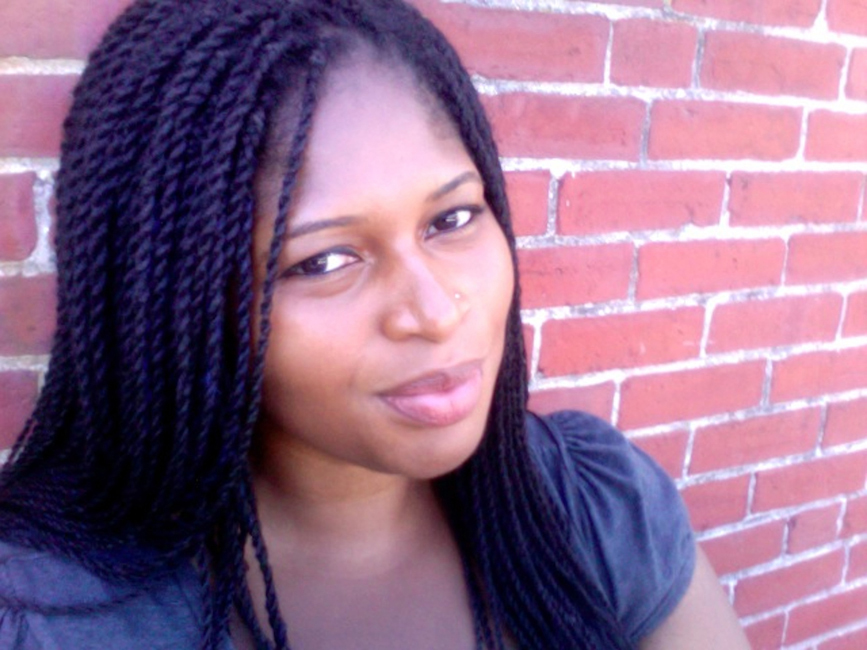 Mecca Jamilah Sullivan’s fiction has appeared or is forthcoming in Best New Writing, Crab Orchard Review, American Fiction: Best New Stories by Emerging Writers, Callaloo, BLOOM,TriQuarterly, Lumina, Philadelphia Stories, All About Skin: Short Stories by Award-Winning Women Writers, Baobab: South African Journal of New Writing and many others. Her honors include the Charles Johnson Fiction Award, the James Baldwin Memorial Playwriting Award, and scholarships and fellowships from the National Endowment for the Arts, the Bread Loaf Writers’ Conference, the Yaddo colony, the Hedgebrook writers’ retreat, and the Center for Fiction in New York City, where she was awarded the 2011 Emerging Writer fellowship. She holds a Ph.D. in English Literature from the University of Pennsylvania. Her short story collection, Blue Talk and Love, is forthcoming. Twitter: @mecca_jamilah Facebook: Mecca Jamilah Sullivan
Mecca Jamilah Sullivan’s fiction has appeared or is forthcoming in Best New Writing, Crab Orchard Review, American Fiction: Best New Stories by Emerging Writers, Callaloo, BLOOM,TriQuarterly, Lumina, Philadelphia Stories, All About Skin: Short Stories by Award-Winning Women Writers, Baobab: South African Journal of New Writing and many others. Her honors include the Charles Johnson Fiction Award, the James Baldwin Memorial Playwriting Award, and scholarships and fellowships from the National Endowment for the Arts, the Bread Loaf Writers’ Conference, the Yaddo colony, the Hedgebrook writers’ retreat, and the Center for Fiction in New York City, where she was awarded the 2011 Emerging Writer fellowship. She holds a Ph.D. in English Literature from the University of Pennsylvania. Her short story collection, Blue Talk and Love, is forthcoming. Twitter: @mecca_jamilah Facebook: Mecca Jamilah Sullivan
Related Posts
« BLACK GIRL SONG & POEM – Danez Smith DO YOU. BE YOU. – The Art of Brianna McCarthy »
